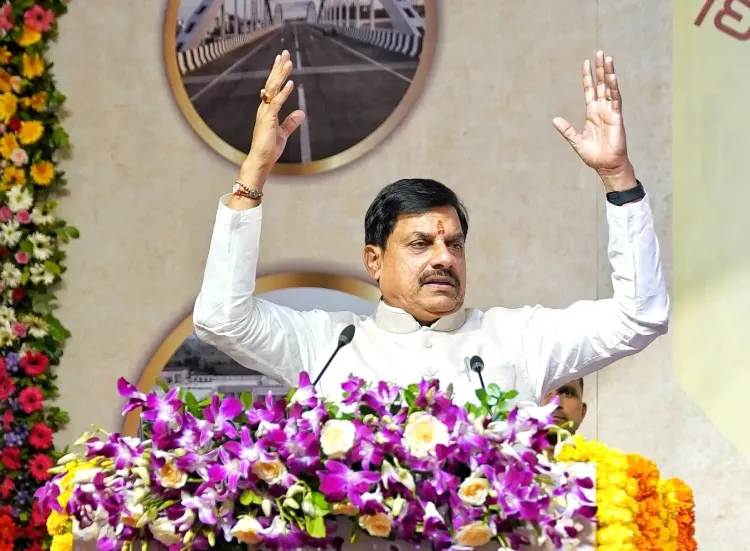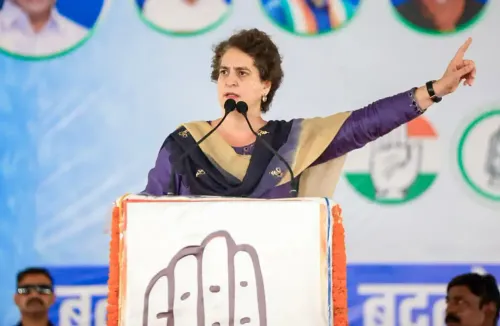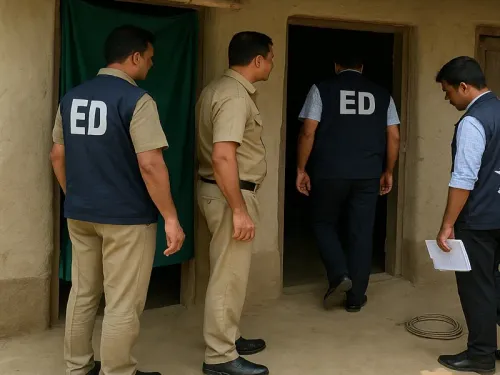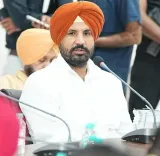Did the SC's verdict on the Waqf Act address PM Modi's critics?

Synopsis
Key Takeaways
- The Supreme Court's ruling clarifies the implementation of the Waqf (Amendment) Act.
- It responds to doubts about PM Modi's intentions regarding minority rights.
- The decision has implications for managing Waqf properties across India.
- Political reactions highlight ongoing debates within the community.
- Future adjudications will shape the law's impact on citizens' rights.
Bhopal, Sep 15 (NationPress) Madhya Pradesh Chief Minister Mohan Yadav reacted to the Supreme Court's ruling regarding the Waqf (Amendment) Act, asserting that this decision has paved the way for a new wave of social reform across the nation.
Yadav emphasized that the court's ruling serves as a response to those who doubted Prime Minister Narendra Modi's intentions when the Waqf (Amendment) Bill was passed in Parliament.
“The Supreme Court's decision has clarified the path for its implementation. The citizens of the country have complete faith in Prime Minister Modi that this law will be applied nationwide,” Yadav stated during a media briefing in Bhopal.
Cabinet Minister Vishvas Sarang from Madhya Pradesh remarked that the Bill faced opposition from individuals who exploited Waqf properties for personal gain.
Discussing the condition of Waqf properties in Madhya Pradesh, the BJP minister accused certain Muslim leaders of encroaching on Waqf Board land and erecting structures, thereby misleading people within the minority community.
“Numerous prominent Muslim leaders have occupied and built on Waqf Board properties, now misguiding impoverished community members through erroneous interpretations of the Waqf Act,” Sarang informed IANS on Monday.
This comment indirectly referenced Congress MLA Arif Masood, a significant figure within the Muslim community in Madhya Pradesh, who opposed the Bill, led protests in Bhopal, and filed a petition with the Supreme Court.
On Monday, the Supreme Court affirmed the provisions of the Waqf Amendment Act, 2025, while suspending some critical components, such as the requirement that only a practicing Muslim for five years can dedicate a property as Waqf.
The Supreme Court did not stay the Waqf (Amendment) Act, 2025 entirely, recognizing that a statute is presumed constitutional and can only be stayed in exceptional circumstances.
However, a Bench led by Chief Justice of India (CJI) B.R. Gavai and Justice A.G. Masih suspended the provision necessitating five years of practicing Islam for Waqf creation until appropriate rules are established.
Moreover, the CJI Gavai-led Bench suspended the provision that grants a designated officer the authority to resolve disputes regarding whether a Waqf property has encroached on government land, arguing that an executive officer cannot adjudicate on citizens’ property rights, as it would infringe upon the separation of powers.
“Until adjudication by the tribunal occurs, no third-party rights can be established against any parties,” it stated.
In its interim order, the apex court mandated that state Waqf Boards should consist of no more than three non-Muslim members, while the Central Waqf Board should not exceed four non-Muslim members.
The Bench also declined to suspend the mandatory registration of Waqf properties, highlighting that this requirement has existed under previous laws as well.









